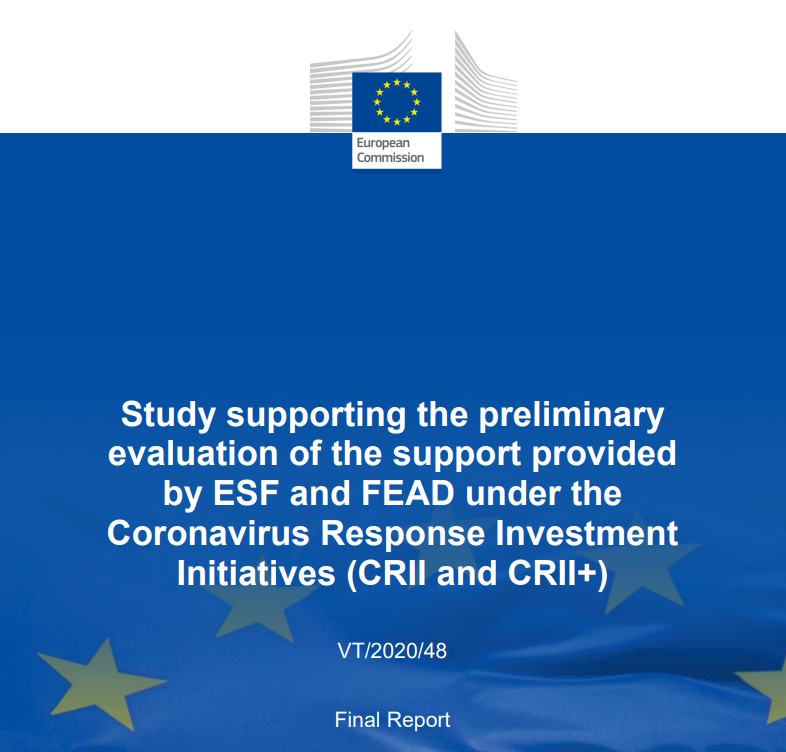The study published by the European Commission on 3 April 2023 assesses the immediate response of the European Social Fund and the European Fund for the Most Deprived to the Covid-19 pandemic.
The study analysed the data based on five criteria: effectiveness, efficiency, relevance, coherence and contribution to the crisis response. The analysis of effectiveness points out that the two initiatives have been successful in enabling national authorities to use the flexibilities that were made available, with the vast majority of Member States and the UK using them to address the COVID-19 effects across employment, social inclusion, education and training, and health.
From March 2020 to September 2022, 23 Member States (plus the UK) used the response initiatives to facilitate amendments to the ESF to respond to the COVID-19 crisis (a total of 219 amendments were identified). 15 Member States also used CRII/CRII+ flexibilities in FEAD programmes to support existing or implement new COVID-19 operations.
The assessment of CRII/CRII+ also pointed to some important lessons learnt:
- Compared to the economic crisis of 2008-2009, the EU responded much quicker and more extensively to the socio-economic challenges triggered by COVID-19. The support was timely and critical in enabling a quick crisis response across the Member States and the UK
- The study findings also highlights a need to facilitate flexibilities while maintaining a focus on monitoring and reporting, thereby ensuring the traceability of operations and their outcomes. Having ad-hoc working groups or interinstitutional mechanisms proved to be successful in terms of informing decision-making
- Extending flexibilities to national and regional procedures and institutional/ organisational capacity are equally important to effective crisis response, as they facilitate access to funding for beneficiaries in emergency situations when a quick response on the ground is critical.
- Anti-crisis operations have revealed investment areas where ESF and FEAD operations could focus further during the post-pandemic recovery phase, thereby continuing the investments that were piloted during COVID-19 (e.g., digitalisation across policy areas, adaptation support for workers and employers, targeted support for the most vulnerable groups, investments in strengthening the resilience of healthcare systems, etc.).




